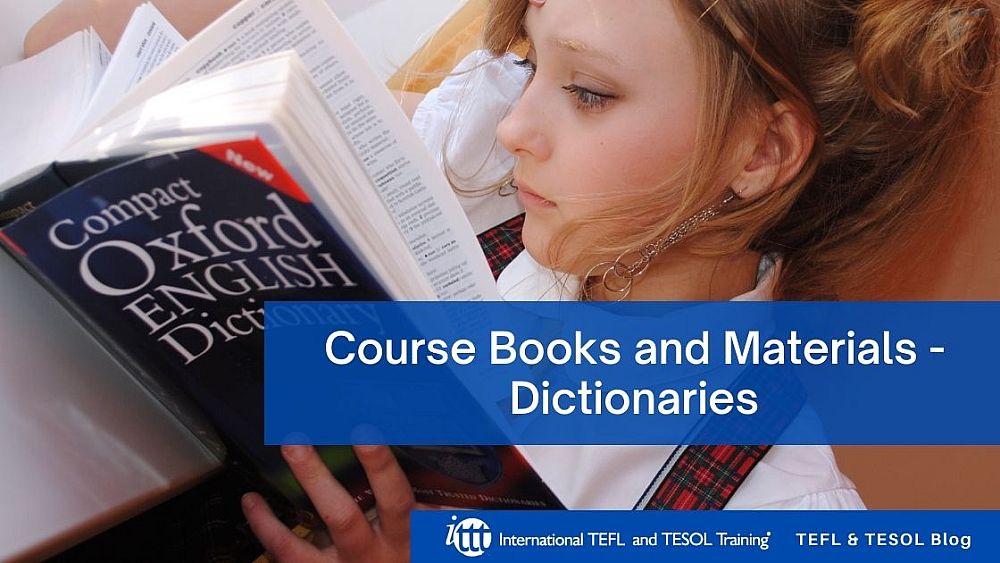Course Books and Materials: Dictionaries

Here perhaps the first thing we should do is to make a distinction between the two main types of dictionary and that distinction is between the monolingual and the bilingual dictionary.
Table of Contents
Watch the video about this topic
So what can we use a dictionary for?
Are you ready to teach English as a foreign language?
Check out what our course grads say in our many video testimonials!
Watch the video about this topic
In a monolingual dictionary you have a word and its associated meaning and those two are both described for example in English. So the word and the description of that word are both given in English.
However, in a bilingual dictionary the word could be for example, given in English and the explanation given in Thai and vice versa.
So what can we use a dictionary for?
Firstly within the dictionary itself obviously we can get things like how words are spelled or the spelling of the word.We can also get the pronunciation of that word because most dictionaries will involve the phonemic symbols that go along with that word and it's very helpful for the students to be able to pronounce it correctly.It can also give us ideas on what part of speech that that particular word can be useful so quite often after the word in the dictionary there will be letters like N or ADV for noun an adverb and so on and so forth.
Another thing that they can do is to sometimes show you a typical context of that word so with in some dictionaries they actually give example sentences showing how that word can fit into context.
Do's and don'ts
Do: there are some very useful homework activities that we can get the students to do by using their dictionary which is a suitable activity to do alone.
Don't: it's quite important that we don't allow students to overuse the dictionary within the classroom itself.
Which one is best?
The best dictionary for your students initially will be the one they find most useful. As a starter or beginner they are likely to find that a bilingual dictionary helps them to find meanings faster. As they progress to higher levels or become more confident in the target language they may find that a monolingual dictionary is more useful. Monolingual dictionaries tend to provide more complex information and examples than bilingual versions.
Are you ready to teach English as a foreign language?
Apply now & get certified to teach english abroad!
Speak with an ITTT advisor today to put together your personal plan for teaching English abroad!
Send us an email or call us toll-free at 1-800-490-0531 to speak with an ITTT advisor today.
Related Articles:
- Top 10 Cities in Europe with the Highest Demand for English Language Teachers
- 5 Reasons To Take A TEFL Course Right Now - Even If You Are Not Leaving Yet | ITTT | TEFL Blog
- All the Documents You Will Need to Teach English Abroad
- The Impact of Positive Motivation on an ESL Classroom
- You're Never Too Old to Change Your Life and Do a TEFL Course | ITTT | TEFL Blog
- Getting Student Placement Right - The Best Desk Arrangements for EFL Students



